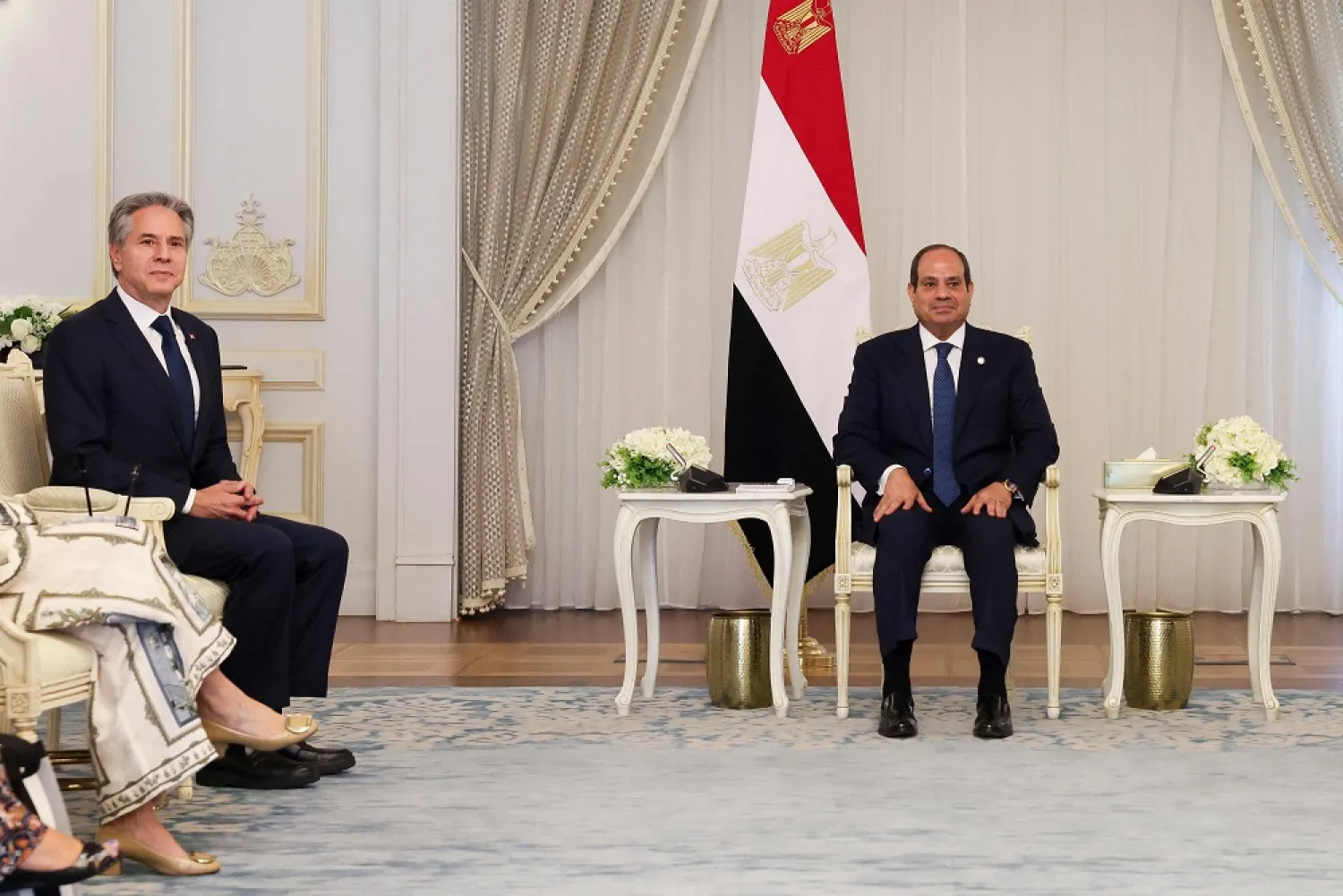US Secretary of State Antony Blinken was visiting fellow mediators Egypt and Qatar as he pressed ahead Tuesday with the latest diplomatic mission to secure a ceasefire in the war in Gaza, even as Hamas and Israel signaled that challenges remain.
Egyptian President Abdel Fattah al-Sisi warned on Tuesday of the risk of the Gaza war expanding regionally in a way "difficult to imagine" during a meeting with Blinken, the Egyptian presidency said.
Hamas in a new statement called the latest ceasefire proposal presented to it a "reversal" of what it agreed to previously and accused the US of acquiescing to what it called "new conditions" from Israel. There was no immediate US response.
Israeli Prime Minister Benjamin Netanyahu, meanwhile, told relatives of hostages in Gaza that a key goal is to "preserve our strategic security assets in the face of great pressures from home and abroad." He noted the "capture" of a narrow buffer zone along the Gaza-Egypt border that Israel calls the Philadelphi corridor. Neither Hamas nor Egypt wants an Israeli presence there.
The meeting came as Israel's military said it recovered the bodies of six hostages taken in Hamas’ Oct. 7 attack that started the war, bringing fresh grief for many Israelis who have long pressed Netanyahu to agree to a ceasefire that would bring remaining hostages home.
Blinken's meetings in Egypt and upcoming ones in Qatar come a day after he met in Israel with Netanyahu and said the prime minister had accepted a US proposal to bridge gaps separating Israel and Hamas. Blinken called on the armed group to do the same.
But there still appear to be wide gaps between the two sides, including Israel’s demand for lasting control over strategic corridors in Gaza, which Hamas has rejected.
Pressure to seal a ceasefire deal has been especially urgent after the recent targeted killings of militant leaders of Hamas and Hezbollah in Iran and Lebanon, both blamed on Israel, and vows of retaliation that have sparked fears of a wider regional war.
Israel's military said its forces recovered the bodies in an overnight operation in southern Gaza, without saying when or how the six died. A forum for hostage families said they were kidnapped alive. Hamas says some captives have been killed and wounded in Israeli airstrikes.
The recovery of the remains is a blow to Hamas, which hopes to exchange hostages for Palestinian prisoners, an Israeli withdrawal and a lasting ceasefire. But it was also likely to increase pressure on Israel's government to reach a deal to free dozens of hostages who are still believed to be alive.
The military said it had identified the remains of Chaim Perry, 80; Yoram Metzger, 80; Avraham Munder, 79; Alexander Dancyg, 76; Nadav Popplewell, 51; and Yagev Buchshtav, 35. Metzger, Munder, Popplewell and Buchshtav had family members who were also abducted but freed during a November ceasefire.
Munder's death was confirmed by Kibbutz Nir Oz, the farming community where he was among around 80 residents who were taken captive. It said he died "after enduring months of physical and mental torture." Israeli authorities had previously determined that the other five were deceased.
Netanyahu praised the recovery effort and said "our hearts ache for the terrible loss," and vowed that Israel would make every effort to bring all hostages home, dead or alive.
There were no immediate reports of any casualties among Israelis or Palestinians in the recovery operation.
Hamas is still believed to be holding around 110 hostages captured in the Oct. 7 attack. Israeli authorities estimate around a third of them are dead.
Hamas-led fighters burst through Israel's defenses on Oct. 7 and rampaged across the south, killing some 1,200 people, mostly civilians, and taking around 250 people hostage. Over 100 hostages were released in exchange for Palestinians imprisoned in Israel during a weeklong ceasefire last year.
Israel's retaliatory offensive has killed over 40,000 Palestinians, according to Gaza's Health Ministry, which does not say how many were militants. Air and ground operations have caused widespread destruction and forced the vast majority of Gaza's 2.3 million residents to flee their homes, often multiple times. Aid groups fear the outbreak of diseases like polio.
An Israeli airstrike on Tuesday killed at least 10 people at a school-turned-shelter in Gaza City, in what the military said was a precise strike on a Hamas command center. Another strike killed a mother and her five children in central Gaza.
The Palestinian Civil Defense, first responders operating under the Hamas-run government, said they were still searching for survivors after the strike on the Mustafa Hafez school in Gaza City. It said around 700 people were sheltering at the school when it was hit.
The Israeli military said the strike targeted Hamas militants who had set up a command center inside the school and were planning and launching attacks.
An Israeli airstrike in central Gaza killed five children and their mother, according to the nearby Al-Aqsa Martyrs Hospital, where an Associated Press reporter counted the bodies. The hospital said the father, Alaa Abu Zeid, a schoolteacher, has been in Israeli detention for the last nine months.









